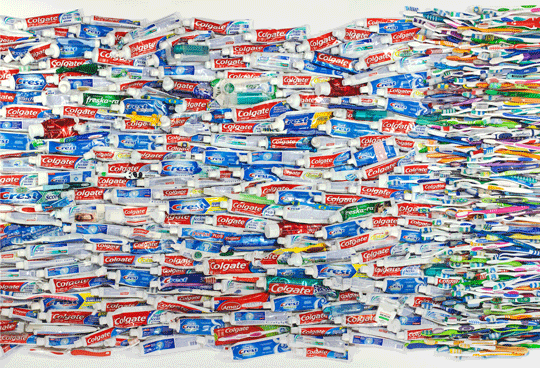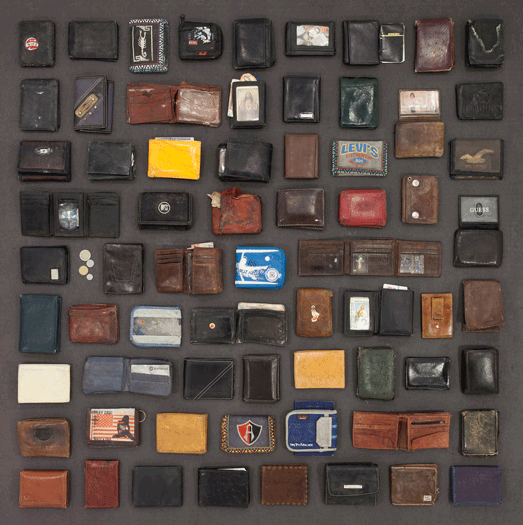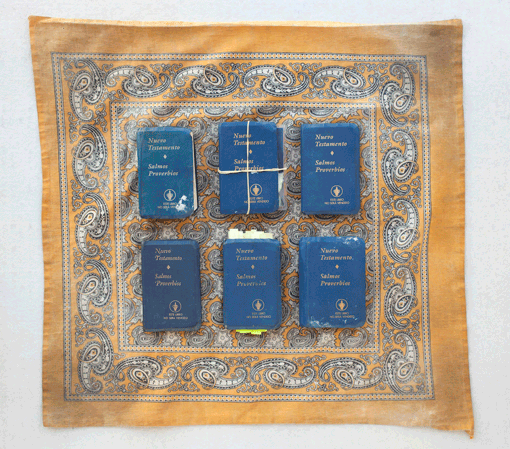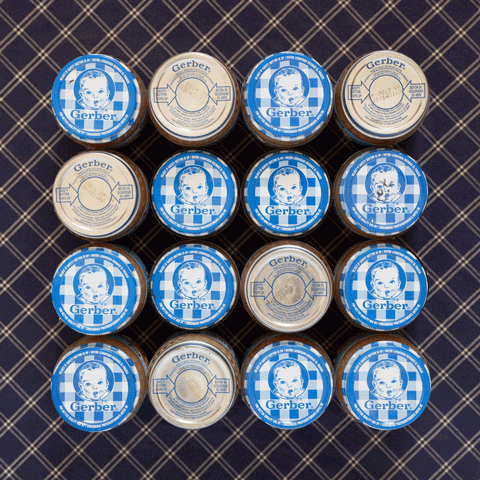Tom Kiefer is an American photographer based in Los Angeles, California. Kiefer’s most recent exhibition titled “El Sueño Americano,” translated to “The American Dream,” focuses on immigration between the U.S.-Mexico border. After working part-time as a janitor for the Customs and Border Protection in Arizona, Kiefer came across items taken away from migrants who had been detained. His work as a part-time janitor allowed him to photograph the items taken away from detainees. Kiefer began collecting the confiscated items and photographing them, bringing a sense of reality to immigration in the United States. The confiscated personal belongings were considered “non-essential” or “potentially lethal.” On the other hand, many of the items collected are important belongings such as wallets, baby wipes, and Bibles. Kiefer’s photographic essays bring light to the United States’ problematic treatment of migrants and comments on the idea of the American Dream.

One prominent piece of Kiefer’s photographic essay is a collection of confiscated wallets of those who were detained at the Mexico-American border. Wallets of varying sizes and colours each tell a story about the person it previously belonged to. While these objects are considered “non-essential,” Kiefer questions how America and its government views those who migrate here. Wallets are a symbol of a person’s wealth and accomplishment. They contain personal items such as money, credit cards, identification, and photos of loved ones. By taking away a person’s wallet and labelling it a non-essential, it removes the individual’s sense of identity. This abuse of power only furthers endless accusations of American mistreatment of immigrants. Stripping away personal items is robbing an individual’s sense of identity. Without an identity, it is hard to see past statistics and evoke the feeling that people do not need to be treated humanely.

Another powerful piece in Kiefer’s photographic essays is a collection of various pocket Bibles in Spanish. In Mexican culture, spirituality is a highly respected practice. However, removing a person’s ability to practice religion is both disrespectful to the individual and their culture and a violation of basic human rights. An individual’s culture and religion are no longer protected under the argument of being “non-essential” or “potentially lethal.” Freedom of religion and faith is a basic human right, ironically one at the forefront of American philosophy. Religion is essential during this stressful situation of uprooting one’s whole life to find opportunities and safety in another country. Kiefer dives deeper into this concept, highlighting how this theft has violated every aspect of immigrant life.

Not only does Kiefer display items relating to religion and identity, but many items collected are basic human necessities for survival; water, baby food, baby wipes, combs, or toothpaste, are all confiscated, despite their owners’ needs. However, the Customs and Border Protection deems these simple human necessities a threat or unimportant. Kiefer’s work highlights injustice by revealing how cruel detainees are treated by America. Migrants come here in hopes of chasing the American Dream, seeking opportunity, safety, and liberty. Unfortunately, many are greeted with fear, prejudice, and hatred. Kiefer calls attention to this issue by bringing a sense of reality to what is happening between the U.S.-Mexico border. Many items taken from detainees are essential to health, spirituality, and identity, yet are claimed to be unnecessary or dangerous. Rather than allowing Americans to ignore the situation, Kiefer forces fellow Americans to confront the cruelty and injustice of the American immigration system.

For more information visit https://www.tomkiefer.com/
